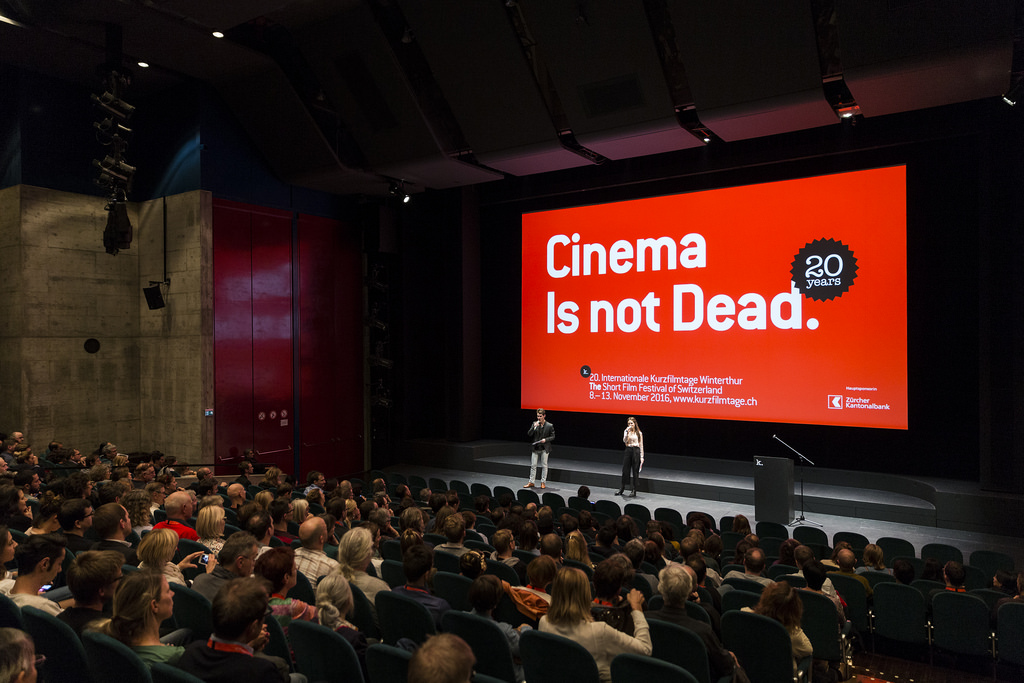The Short Film Format and Its Exhibition
Laura Walde, M.A.
Referentin: Prof. Dr. Fabienne Liptay
As a subject of research, the short film has yet to be established within the discourse of film studies. This is a rather curious situation, given that cinematography is historically rooted in the short form. Owing precisely to its marginal status within cinema culture as well as to its smaller budget and shorter production time, the short film allows filmmakers a certain freedom with regard to formal frameworks. In short film the overlap between different genres of fiction, experimental film and video art is particularly fluid. Due to these circumstances, the short format is often related to experimental and alternative film and its exhibition within the spaces of art galleries and museums. The dissertation project takes the short film’s brevity, its marginalization in the film theoretical discourse and its circulation in different institutional contexts as its points of departure and asks what specific formats the short film and its exhibition assume, and what sort of epistemological potential and impact these formats might have on a cultural, social and political level.
Taken as an individual work, the short film is foremost defined by its brevity, or its failure to meet the standard duration set by the normative feature-length format. Understood as a kind of ‹shortage›, the brevity of the short film format might be construed as a productive gesture. Similar to critics’ theoretical writings on the literary short story – a form which is much like cinema considered a «child of [the 20th] century» (Bates 1941: 21) – a potential connection between the discourses and practices associated with the semantic field of the short (such as the small, fast, unfinished, light, elliptical, evasive, ambiguous, volatile, intimate, exquisite) and the breakdown of certain normative rules can be made for the short film format, too. The central questions to be answered are how the short film format, in different moments of time, realized its potential as a «minor» film form, and how its power is intimately connected to the format’s small, often highly compressed data volumes and brief viewing times, which allow for a greater freedom of circulation, diffusion, sharing, and combination in a broad spectrum of distribution channels and exhibition spaces.
The main public platform for exhibiting short films is the short film festival. In addition to analyzing what the specific format of the short film entails, a second part of the dissertation will focus on the short film festival as a cultural, political, economic and social sphere of practices within a framework of superordinate and associated institutions (cinemas, promotional agencies, the host city, film schools, production companies, etc.). This is especially relevant for short film, which has never held a dominant position within commercial distribution and, due to its brevity, is nearly always part of a program. Its dependence on a screening context is an important issue that calls for a theory of exhibition especially targeted at the short film festival and its expansion into and interrelations with other screening contexts (the gallery, the cinema, the internet).
Thinking of the social space of the festival as a format, too, a special emphasis will be placed on the activities of curating and programming as the two central practices to find, select, present and thus to contextualize and valorize a specific work within the larger context of the program. The curator and the programmer are central stakeholders in the contemporary contexts of film exhibition. Although these designations stem from different fields of discourse (museology, information technology, television studies), they do not characterize two distinct and concrete sets of professional practices as much as they demonstrate to which degree the understanding of these practices is in flux based on the ever increasing blurring of institutional boundaries in the «expanded field» of the exhibition. To think of curating and programming as a form of re/formatting will allow for a critical reflection on how short film is perceived and presented, based on its understanding as a format, within historical and contemporary contexts of medial, institutional, and cultural changes.
For the practical framework and archival source material, this project will be closely tied to Internationale Kurzfilmtage Winterthur as the largest and most important short film festival of Switzerland, in order to link theoretical considerations to issues arising from practical models.
